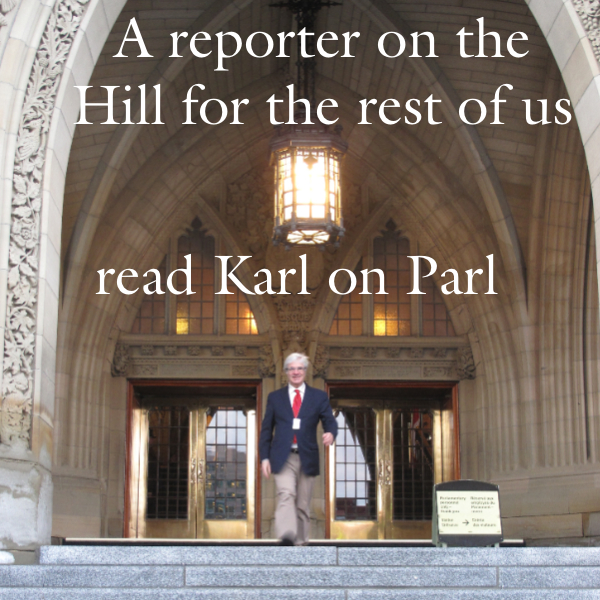Keep Karl on Parl! Donate today to have Parliamentary reporting for the rest of us.
Militarily and economically — and in most other ways — Canada is a middle power, as befits a country of 34 million.
But in mining and other extractive industries, this country is a super power.
Most major — and many minor — mining and extractive companies are, at least in part, Canadian.
In Canada, those companies have to abide by Canadian labour and environmental laws. The current Conservative government is working hard to weaken both. But Canadian laws and regulations are still far more stringent than those of many countries where Canadian companies operate.
Take Eritrea, in the horn of Africa, for example.
The head of Amnesty Canada, Alex Neve, describes Eritrea as a “closed, close to totalitarian society.”
Non-governmental organizations (NGOs) and church groups are virtually barred from the country, and the media have no effective access.
Nonetheless, Canadian mining companies are there, happily making profits; but, in Neve’s words, “without having done due diligence.”
Those companies face little or no oversight from the Eritrean government.
Local communities that have concerns over human rights, labour or environmental abuses have, in essence, no legal recourse, no means of forcing the companies to address their concerns.
It is the same in scores of countries where Canadian companies are major players.
That is why Amnesty has joined with a number of church, human rights groups and labour groups (including the United Steelworkers) to form the Canadian Network on Corporate Accountability. The network has launched a campaign to give legislated access to justice in Canada to people around the world who have conflicts with Canadian companies.
A tale of murder, rape and assault
At a news conference in Ottawa on Tuesday one person who believes her community was victimized by a Canadian company, HudBay mining, forcefully spoke out.
Angelica Choc is an indigenous Mayan Q’eqchi’ woman from the community of La Union in Guatemala.
Speaking in Spanish, she told the gathered reporters about the land conflict between HudBay’s Guatemalan subsidiary and local indigenous people whom the company claims had “illegally” occupied “its” land.
When asked for examples of human rights abuses, Choc mentioned the rape of 11 women, an assault that left one person in a wheelchair and the murder of a teacher and community leader.
Then, when asked how she was personally affected by the conflict, Choc said: “That murdered teacher was my husband.”
The Hudbay/Guatemala case is exceptional because it is now before the Superior Court of Ontario.
HudBay is not facing criminal charges, but 13 Guatemalans have succeeded in suing the company and are claiming damages for the alleged rape, murder and assault.
However, Neve and other members of the Network on Corporate Accountability point out that the HudBay case is the exception rather than the rule.
It is very difficult to get a hearing in a Canadian court, although there is non-judicial option for people from foreign countries in conflict with Canadian companies: the federal government created Corporate Social Responsibility (CSR) Counsellor.
However, Members of the Network say the CSR Counsellor is a virtually useless body, because participation in its reviews is voluntary.
Almost all companies brought before the Counsellor thus far have refused to participate.
Mexican human rights activist Valeria Scorza described one such case involving the Canadian company Excellon Resources that has a silver mining operation in Durango State.
Both the workers and the communal landowners in the region of the company’s operations brought complaints against Excellon to the Counsellor.
Their concerns ranged from the failure of Excellon to live up to a series of environmental pledges to unfulfilled commitments on workers’ wages and working conditions.
The people from Durango State went to the Canadian CSR Counsellor full of hope that they would get a hearing and receive even-handed treatment.
But the company simply walked away from the process, and that was the end of it.
An Ombudsman and access to Canadian courts
To replace the toothless CSR Counsellor the Corporate Accountability Network recommends a Canadian extractive sector Ombudsman, whose office would have real powers. Canadian companies would not have the right to boycott or balk the Ombudsman.
The Network also suggests that Parliament pass a new law guaranteeing access to Canadian courts for people from other countries who have been seriously harmed by the operations of Canadian companies.
The coalition of groups is working on a draft version of that proposed new law.
At the same time, the Canadian branch of the United Steel Workers is offering active aid to labour groups in places such as Durango State Mexico.
Ironically, on the same day that the Network launched its campaign for access to justice, the Ottawa Citizen broke a story that underscores how cozy the Harper Conservatives are with Canadian mining companies that have extensive operations abroad.
Elizabeth Payne’s report tells how the government engaged the CEO of a mammoth mining corporation, Rio Tinto Alcan, to advise it on the merger of Canada’s Foreign Affairs, Trade and International Cooperation Departments.
Few qualified observers can figure out what expertise a mining executive might bring to public service restructuring.
Given their closeness to the extractive sector it is doubtful if the Conservatives would even consider the Corporate Accountability Network’s very practical and reasonable suggestions.
But, if they were to go so far as to consider them, you can be sure they would give their powerful and well-connected friends in industry a virtual veto power over any decisions.



